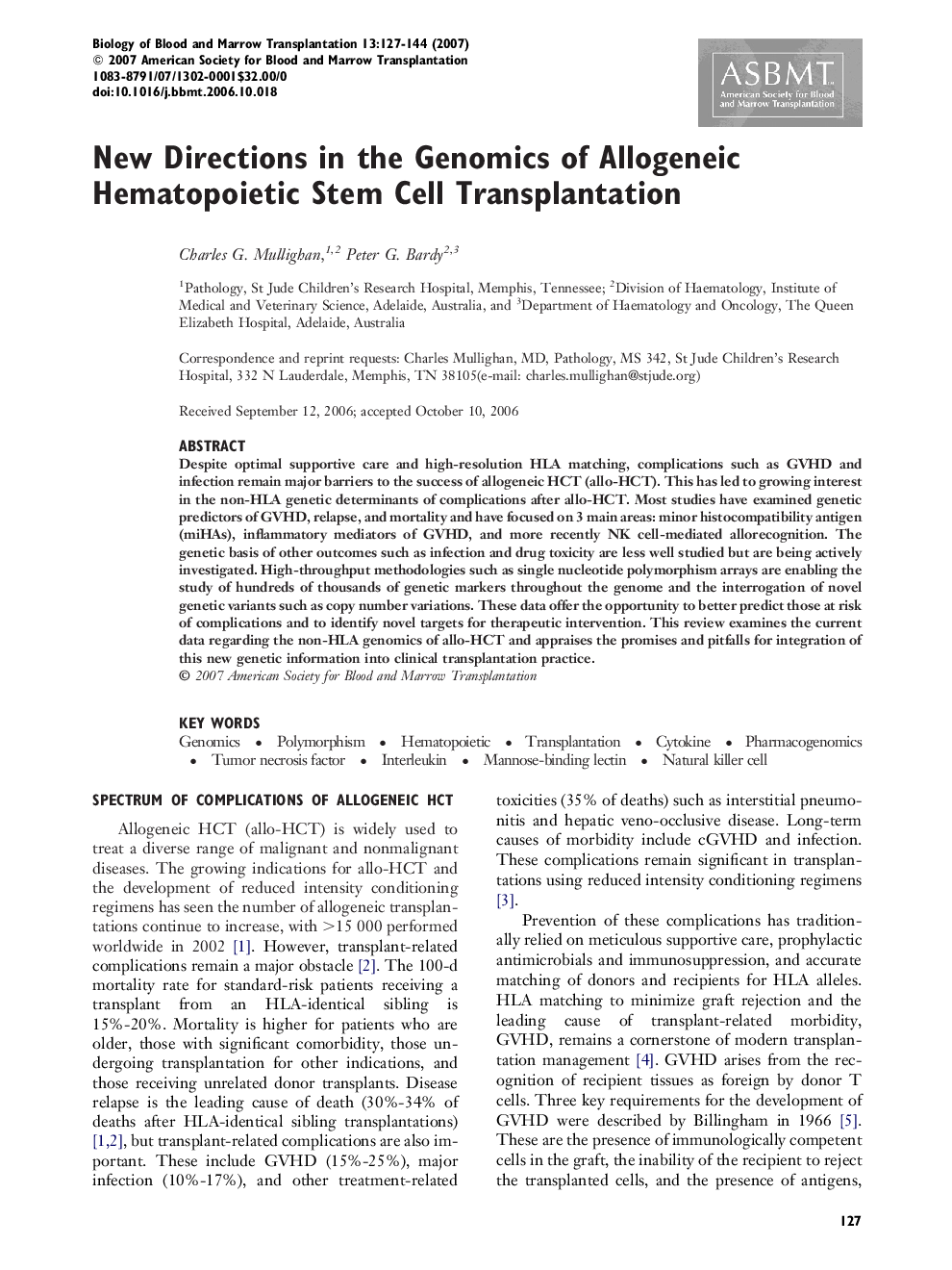| Article ID | Journal | Published Year | Pages | File Type |
|---|---|---|---|---|
| 2104562 | Biology of Blood and Marrow Transplantation | 2007 | 18 Pages |
Despite optimal supportive care and high-resolution HLA matching, complications such as GVHD and infection remain major barriers to the success of allogeneic HCT (allo-HCT). This has led to growing interest in the non-HLA genetic determinants of complications after allo-HCT. Most studies have examined genetic predictors of GVHD, relapse, and mortality and have focused on 3 main areas: minor histocompatibility antigen (miHAs), inflammatory mediators of GVHD, and more recently NK cell-mediated allorecognition. The genetic basis of other outcomes such as infection and drug toxicity are less well studied but are being actively investigated. High-throughput methodologies such as single nucleotide polymorphism arrays are enabling the study of hundreds of thousands of genetic markers throughout the genome and the interrogation of novel genetic variants such as copy number variations. These data offer the opportunity to better predict those at risk of complications and to identify novel targets for therapeutic intervention. This review examines the current data regarding the non-HLA genomics of allo-HCT and appraises the promises and pitfalls for integration of this new genetic information into clinical transplantation practice.
